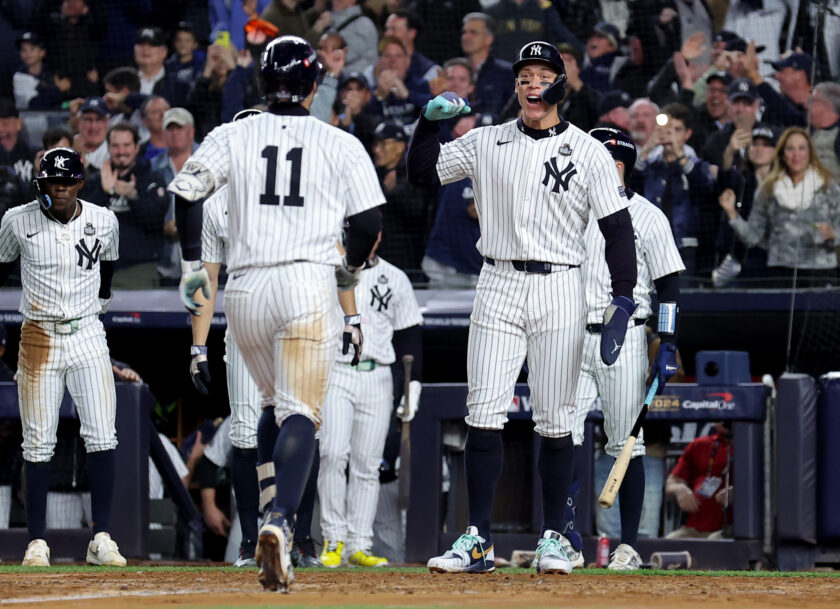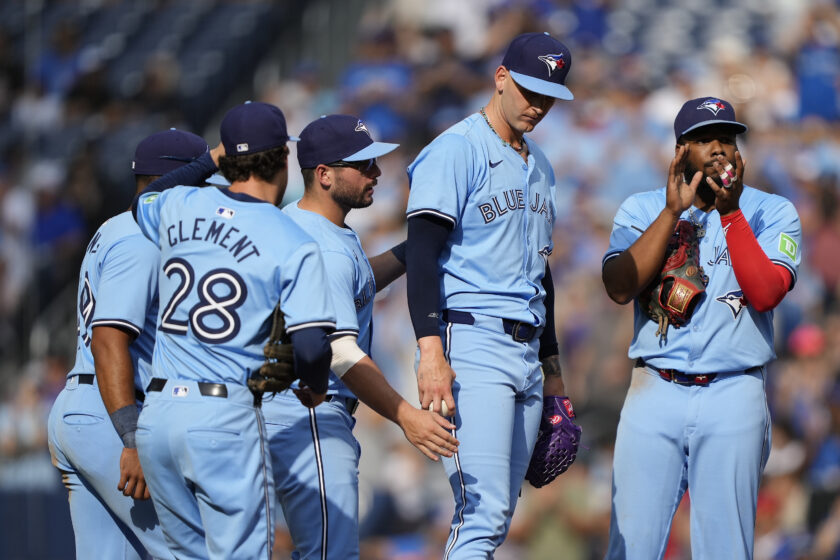Tom Brady’s Four Game Suspension Reinstated By Federal Appeals Court

A United States appeals court have reinstated a four-game suspension handed down to New England Patriots quarterback, Tom Brady before the 2015 season on Monday.
By Michael Corbett
 After the 2015 AFC Championship game where the New England Patriots defeated the Indianapolis Colts handily, the news broke that the Tom Brady and the Patriots had used under-inflated balls during the first half of the game. The Colts were said to have reported the potential violations to the NFL and as a result, a media frenzy ensued.
After the 2015 AFC Championship game where the New England Patriots defeated the Indianapolis Colts handily, the news broke that the Tom Brady and the Patriots had used under-inflated balls during the first half of the game. The Colts were said to have reported the potential violations to the NFL and as a result, a media frenzy ensued.
Following news that the first half of the AFC Championship game was potentially tainted, the NFL conducted an independent investigation led by New York Based attorney Ted Wells.
The Wells Report found that Brady was more likely than not to have had some sort of knowledge that the balls were indeed deflated below regulatory allowances. Given the fact that Brady destroyed his cell phone, despite being required to supply the cell phone to the investigation was a strong indicator that he may have had something to hide. As a result, a 4 game suspension of Brady was announced by the commissioners office.
Ultimately, Brady would go on to appeal the suspension and win. He played the entire 2015-2016 NFL season knowing that the NFL could appeal the decision made by Judge Berman before the season.
The true motives behind both sides of this situation are murky at best. The NFL has never suspended a player for an equipment violation in its history prior to the Deflategate scandal.
So who is on the right? Who is in the wrong? Did Brady cheat? Did the commissioner abuse his power? You’d be correct if you answered yes to each of these questions. Hmm? What? How can that be? How can both sides be right and both sides be wrong?
The world is not black and white, folks. There are gray areas in every aspect of life. When the commissioner’s office suspended Brady, it is reasonable to suggest that they were acting out of pressure from the majority of owners who were still upset about the Patriots having cheated during the early 2000’s with their taping opponents practices. It is also reasonable to suggest that the suspension was a massive overreaction to an equipment violation regardless of whether it was scientifically proven to be an effect from the cold weather or purposely tampered with by the Patriots.
Let’s not forget, all balls used in the second half of the AFC title game were within the legal size parameters. The Patriots won that game by a final score of 45-7. They won the second half by a score of 28-0. They certainly did not win that game due to under-inflated footballs. It was an absolute mismatch from the start.
But did Brady and the Patriots have anything to do with the deflation of the footballs? It’s certainly plausible to suggest that they did, especially when you consider the fact that Brady destroyed his phone before it could be used as a part of the investigation.
If you assume that Brady and the Patriots were indeed guilty, then you must assume that the commissioners office was correct in disciplining them.
At the same time, you must realize that the severity of the discipline was far beyond what was necessary for such a minor offense. When you study the details of this case, you’ll find that it’s quite clear that both sides have ulterior motives and have been less than completely truthful.
Remember, the NFL does not need to prove without a shadow of a doubt that Brady was guilty. They only need to show that there was knowledge by the alleged offender and intent to violate the rules in regards to the size of footballs.
So was the commissioner acting within his rights when he suspended Brady? Sure he was as the NFL and NFLPA collectively bargained his right in doing so. However, his discipline was so over the top it’s extremely difficult not to think that he abused his power after feeling the pressure from the owners in the NFL to put the hammer down on 4 time Super Bowl champion.
While the discipline was far beyond what would be considered fair for such a minor violation, it was well within the NFL’s right to make such a disciplinary decision. It is not the right of the courts to overturn such a decision based on the validity of Brady’s guilt or lack thereof. The courts are only allowed to form a decision based on whether the NFL acted within their rights by suspending Brady. If any abuse of power were to be found by the courts, that would be an acceptable means to overturn the NFL’s decision.
The Federal appeals court found that the NFL acted fully within their right which is determined by the Collective Bargaining Agreement by suspending Brady and as a result chose to reinstate Brady’s suspension, whether fair or unfair.
NEXT: Five Things That Shouldn’t Surprise You During The NFL Draft
Michael Corbett is the Head Coach at San Diego Padres Baseball Camps, Regional Manager at Coast 2 Coast Soccer, Former Director of the i9 Sports T-Ball Program, Former Marketing Assistant for the i9 Sports Franchise, and an MILB credentialed Journalist for HardballScoop.com (A division of Scout Media). Michael is also a USPA Verified Credentialed Journalist.
Michael holds a Masters degree in Sports administration from Fairleigh Dickinson University. He has more than 5 years of experience working in the sports administration field in specializations that range from sports journalism to youth sports coaching, to managing sports operations of a number of different types of sporting events.






